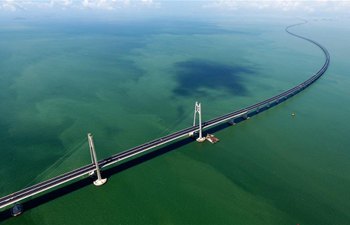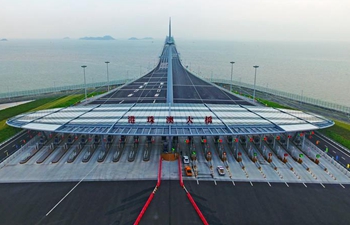CANBERRA, Oct. 28 (Xinhua) -- The Australian government could be pressured to establish a federal anti-corruption commission to stave off an early election.
Members of the crossbench in the House of Representatives, the lower house of Australia's Parliament, have joined forces to push for the commission, saying that "nobody should be above the law."
The crossbench is made up of Members of Parliament (MPs) who do not belong to the governing Liberal-National Party Coalition (LNP) or Opposition Australian Labor Party (ALP).
The six crossbenchers currently in Parliament hold the balance of power after the LNP lost its majority in October's Wentworh by-election, which was won by independent Kerryn Phelps.
If the six joined forces with the ALP to pass a motion of no confidence in the government both houses of Parliament would be dissolved and an election would be called.
Rebekha Sharkie, a South Australian MP for the Centre Alliance party, on Sunday said that the crossbench had been pushing for an anti-corruption commission for "the best part of a year," saying Australians needed to have confidence that their representatives were acting "with integrity."
"Nobody should be above the law, whether it happened back in 2004 or whether it happened this year, whether you are a politician, or whether you are a senior public servant," she said.
"And it's just astonishing that we would not have (an anti-corruption body) given that we have that in every state," she said.
The ALP in January announced it would establish the body if victorious at the next general election, which is due to take place in May 2019 unless there is a successful motion of no confidence.
Attorney-General Christian Porter on Saturday gave the first indication that he could support the idea having previously said there was no "persuasive evidence" that current anti-corruption measures were not working.
"I would be very pleased to meet with any crossbenchers interested in the issue to discuss their views and the work conducted in this area by the government in considering ways to improve present integrity arrangements," he told Fairfax Media.
"It is important that changes in this area improve upon the current system, rather than adding complexity and confusion."













